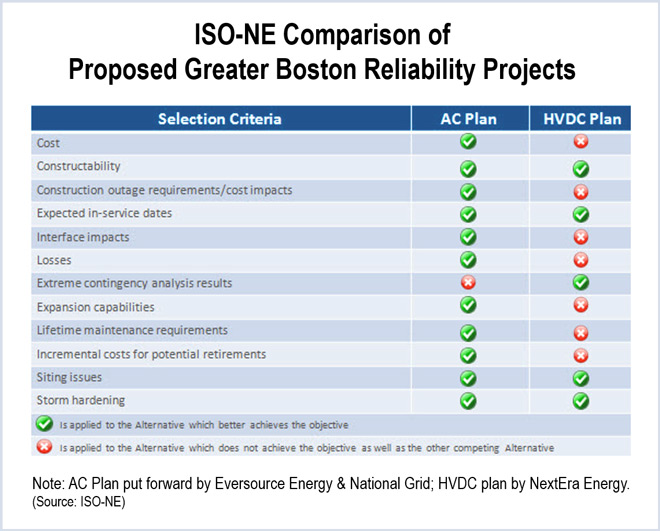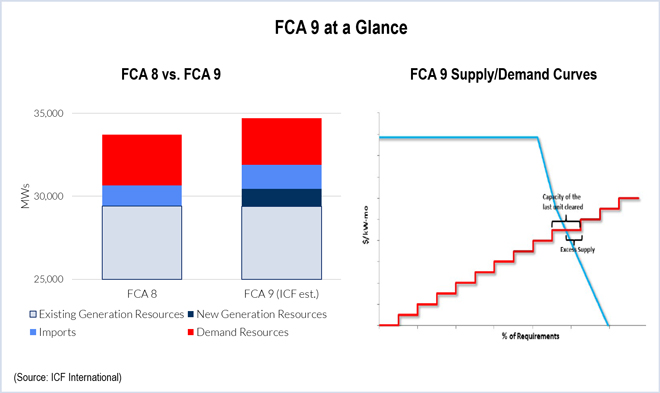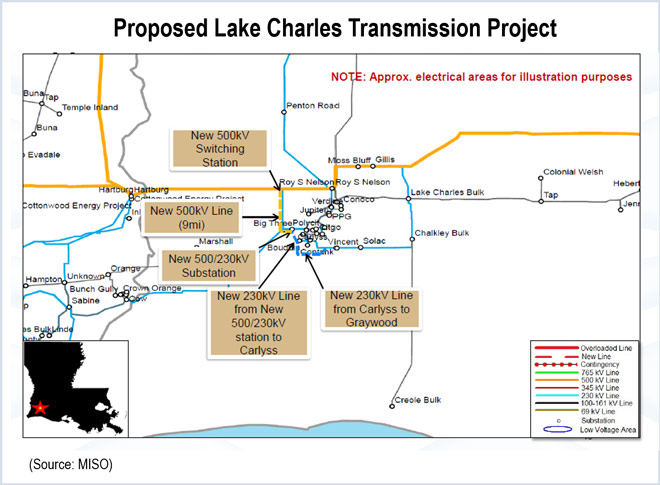Nuclear a Renewable Resource? Arizona Senate Panel Says ‘Yes’
A state Senate committee has passed a bill — by one vote — that would declare nuclear power a renewable energy source. SB1134 would define nuclear energy as renewable if it comes from “sources fueled by uranium fuel rods that include 80% or more of recycled nuclear fuel and natural thorium reactor resources under development.” State code currently holds nuclear and fossil fuels as non-renewable.
More: Phoenix New Times
ARKANSAS
Senators’ Bill Would Give States Say over Feds on Tx Lines
The state’s two Republican U.S. senators, prompted by a proposed Clean Line transmission project in the state, have introduced federal legislation to “restore the right of states” to rule on transmission projects before the federal government steps in.
Sens. John Boozman and Tom Cotton introduced the Assuring Private Property Rights Over Vast Access to Lands (APPROVAL) Act, which calls for the U.S. Department of Energy to get approval from states’ governors and public service commissions before exercising eminent domain. Such decisions, Boozman said, “should not be in the hands of Washington bureaucrats. If a project is not good for Arkansas, our governor or public service commission should have the power to say ‘no.’”
More: Times Record
DELAWARE
Environmental Groups Ask Judge for Venue to Stop Oil Shipments

The environmental groups argue that such use is a violation of the state’s Coastal Zone Act. But both the Environmental Appeals Board and Coastal Zone Act Industrial Control Board have said challenges to the permit are outside of their jurisdiction. The groups asked Superior Court Judge Andrea L. Rocanelli to identify a venue for their challenges to the permit. She is expected to rule within 90 days.
More: The News Journal
ILLINOIS
Madigan, Emanuel Call for Investigations of Peoples Gas

Chicago Mayor Rahm Emanuel and state Attorney General Lisa Madigan are calling for an audit of Peoples Gas to be made public in light of the company’s burgeoning cost overruns on pipeline replacement projects. Costs for the project went from a projected $2.2 billion to $4.6 billion. Madigan and Emanuel have called for a subpoena of the auditing company, Liberty Consulting Group, to have it testify about what it discovered about the projects and the company’s management of them. Peoples is replacing about 1,700 miles of gas mains and is supposed to complete that by 2020. An administrative law judge earlier this month denied Madigan’s request to make the audit public.
More: Crain’s Chicago Business
INDIANA
IURC Denies IPL’s $12.3 Million Recovery Request for Charging Stations
Indianapolis Power & Light’s request for $12.3 million in cost recovery that would have paid, in part, for a program to build charging stations for electric cars was denied by the Utility Regulatory Commission. IPL said it would decide whether to appeal the decision. It had asked for the money to install charging stations and kiosks for the BlueIndy project, part of Indianapolis’ electric-car sharing program.
More: Indiana Public Media
MICHIGAN
Gov.’s Office Says We Energies ‘Double-Dipping’ in UP Deal
Gov. Rick Snyder’s senior policy advisor accused We Energies of “double-dipping” for collecting ratepayer subsidies to keep an Upper Peninsula power plant on while at the same time getting paid by a returning industrial customer whose departure helped spur the subsidies in the first place.
We Energies is collecting about $8 million a month in system support resource (SSR) payments to keep the Presque Isle plant in Marquette open. Those payments and higher rates were necessary, the utility successfully argued, to keep the plant open. But Cliffs Natural Resources, an industrial customer that left two years ago, returned earlier this month. Cliffs Natural Resources makes up 85% of the plant’s load. “We absolutely believe they are double-dipping,” said Valerie Brader, Snyder’s senior policy advisor said.
WE spokesman Brian Manthey disputed that, saying the industrial customer is not guaranteed to stay with the company. Cliffs Natural Resources “could leave at any time, leaving other customers at risk,” Manthey said. “Without a long-term agreement over an extended period of time with the mines, they could potentially leave. We feel the SSR should stay in place at this point because they are not committed.” The company has until Feb. 25 to respond to the Public Service Commission.
More: Midwest Energy News
State to Meet 10% Renewable Energy Goal by End of Year
The Public Service Commission says the state will have 10% of its energy come from renewable sources by the end of the year. Its report said that the level was at 8.1% in 2014, up from 7.8% in 2013. “By the end of the year, Michigan will have reached its renewable energy portfolio standard — 10% by 2015,” PSC Chairman John D. Quackenbush said. “The RPS can be credited with over 1,450 MW of new renewable energy projects becoming commercially operational since [the law] took effect.” The PSC said 59% of its renewable energy comes from wind, followed by 16% hydro and 14% biomass.
More: MLive
MINNESOTA
Regulators Approve 187 MW of Xcel Solar Projects
The Public Utilities Commission last week approved three solar projects proposed by Xcel Energy that will increase the state’s solar capacity by a factor of 10. The largest of the three projects is a 100-MW array in North Branch. Community Energy Solar, a Radnor, Pa.-based company selected by Xcel to build it, said it will be “far and away the biggest” solar project in the Midwest. Two other projects near the towns of Tracy and Marshall will add another 87 MW of capacity. Those two alone will be enough to allow Xcel to meet its state mandate for 1.5% of its electricity from solar by 2020.
More: Minneapolis Star-Tribune
NEBRASKA
TransCanada Puts Keystone Land Buys on Hold Pending Suit
TransCanada, the company attempting to build the Keystone XL Pipeline, is holding off on buying any more state land until a state court decision on a suit filed by landowners who don’t want to sell. The company has already purchased about 90% of the land necessary for the proposed pipeline to run through the state.
A 2012 state law gave the governor the power to determine the pipeline route through the state. Landowners are suing, saying that power properly rests with the state Public Service Commission. Four of the seven state Supreme Court justices already ruled in the landowners’ favor, but five justices are needed to strike down a state law.
More: Financial Post
NEW JERSEY
Senate Passes Bill that Would Force BPU Approval of Wind Plan

More: Recharge News
NORTH CAROLINA
Piedmont Natural Gas Files for Rate Reduction
For the third time in three months, Piedmont Natural Gas has filed with regulators here and in South Carolina to cut its natural gas rates. The rates are a pass through on a dollar-for-dollar basis, and dropping wholesale natural gas prices are driving the reductions. If approved, residential customers would see an average savings of about $10 per month.
More: Greer Today
OHIO
PUCO Near Ruling on AEP’s Power Purchase Deal
The Public Utilities Commission is near a decision on whether to grant American Electric Power a power purchase agreement that will guarantee income on its share of a coal-fired generating plant. The company said the agreement is necessary to ensure continued operation of the plant in the face of increased competition. AEP, which has a larger, similar request before the commission, has hinted that if PUCO denies either request, it may decide to sell more than 2,700 MW of generation in the state. Consumer advocates and environmental groups are against it, because it transfers the risk from AEP shareholders to ratepayers.
More: Columbus Business First
OKLAHOMA
Earthquake Victim Filing for Class Action Lawsuit Status Against Energy Companies
A woman whose home was damaged in a 2011 earthquake she claims was caused by hydraulic fracturing has sued two energy companies. Jennifer Lin Cooper filed in Lincoln County, saying the quake caused $100,000 damage to her home and she cannot afford repairs. She named Spess Oil and New Dominion as defendants. The suit seeks class action status for residents of nine counties whose homes suffered damage from three large earthquakes in the Prague area. Oklahoma had more earthquakes than California last year. It recorded 585 quakes of 3.0 magnitude or greater in 2014, more than the past 35 years combined.
More: Tulsa World
PENNSYLVANIA
New Gov.’s Shale Gas Tax Gets Rise Out of Industry
Gov. Tom Wolf almost immediately announced new taxes on gas extraction in the state when he got into office, but a coalition of energy companies thinks Wolf’s moves will put a chill in the state’s energy industry. As part of Wolf’s Pennsylvania Education Reinvestment Act, shale gas operations will be taxed at 5% of income and an additional 4.7 cents per 1,000 feet of gas extracted. “Make no mistake, adding a 5% tax to any business sector, including the energy industry, is going to reduce capital spending and hit the supply chain, especially Pennsylvania-based small and mid-sized business,” said David Spigelmyer, president of the Marcellus Shale Coalition.
More: UPI
SOUTH DAKOTA
PSC-Approved Tx Project Facing Land Rights Challenges
A 144-mile, $54 million transmission line approved by the state Public Service Commission is in jeopardy because Black Hills Power is having difficulty convincing property owners to let them build. Black Hills Power wants to build the line between substations in Wyoming and South Dakota, but 65 property owners are balking. The company had estimated the line would be complete by the end of the year but said it may have to resort to eminent domain action to move forward.
More: Casper Star Tribune
WEST VIRGINIA
House Passes Bill to Give Lawmakers Last Say in EPA Clean Power Mandates
The state House overwhelmingly passed a bill that would give the legislature the last word when it comes to developing a compliance plan to meet the U.S. Environmental Protection Agency’s Clean Power Plan. The plan gives each state a goal to reduce carbon dioxide emissions and calls for each state to come up with a compliance plan. The bill, which has not yet passed the house, would call for state agencies to deliver compliance plans to the legislature, rather than to the EPA.
“In my opinion, the EPA has overstepped its boundaries,” said the bill’s sponsor, Del. Josh Nelson.
More: The State Journal
WISCONSIN
Judge Overrules PSC’s Solar Panel Size Restriction
A Dane County judge ruled last week that the state Public Service Commission erred when it set a limit on the size of solar panels that could qualify for net metering. The PSC, backed by arguments from utilities that were mandated to pay solar panel owners who qualified, said there needed to be a size restriction on the program that allows businesses, schools and churches with large solar arrays to earn credits for power they sell back to the utilities. The judge said that the PSC didn’t gather enough information before issuing its ruling.
More: Wisconsin Public Radio









